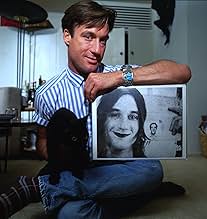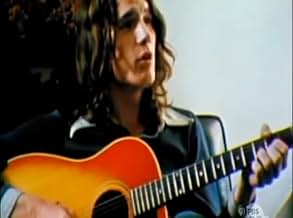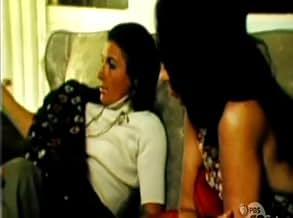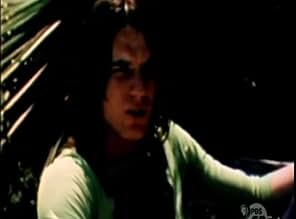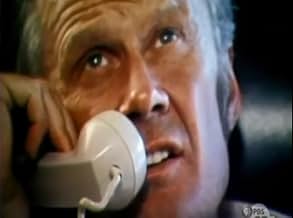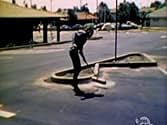Aggiungi una trama nella tua linguaFollows the real lives of the Loud family, a motley group of suburbanites.Follows the real lives of the Loud family, a motley group of suburbanites.Follows the real lives of the Loud family, a motley group of suburbanites.
Sfoglia gli episodi
Recensioni in evidenza
An early version of the peek and see webcams of today like MTV's original'Real World' and 'Jennicam', the William Loud family of Santa Monica California allowed a television crew [PBS] to set up a camera and photograph >the Loud family in their daily activities barbeques, sibling hassles, petty squabbles between Pat Loud and her husband Bill, it was certainly a very unusual thing, this documentary it was sort of like peeking over your neighbor's fence and spying on them...a most unusual television production!
I videotaped most of the series when it reran on WNET some 20 years ago, and I keep trying to like it. But even to this avid TV viewer who lived through that era and is fascinated by cultural anthropology, the show is largely unwatchable.
The problem is that except for a couple of episodes (episode 2 and maybe the one with Lance in Paris), it's dull and slow. What made it shocking in 1973 -- the strangeness of being able to peek into someone else's day-to-day life -- has now been eclipsed by a torrent of tell-all talk shows and contrived "reality shows." Without the show's original voyeuristic shock value, ten of the twelve hours are unadulterated tedium (though I imagine a nifty 100-minute documentary could be culled from the footage).
The problem is that except for a couple of episodes (episode 2 and maybe the one with Lance in Paris), it's dull and slow. What made it shocking in 1973 -- the strangeness of being able to peek into someone else's day-to-day life -- has now been eclipsed by a torrent of tell-all talk shows and contrived "reality shows." Without the show's original voyeuristic shock value, ten of the twelve hours are unadulterated tedium (though I imagine a nifty 100-minute documentary could be culled from the footage).
Regardless of the ethics involved, you have to give credit to that Gilbert guy for coming up with the concept. Also, apparently he did explain in an introduction that this family is not representative of a typical American family. They are simply AN American family.
Having said that, what a depressing lot. The man with the "old-school" values of work and responsibility is portrayed as the square, and the outrageously spoiled wife and kids are the "cool" ones.
What is most shocking is how the kids and the wife are totally disassociated from the source of their material comfort. They have no sense that someone is working to attain all this. Although the dad makes attempts to teach them a work ethic, he is to blame almost as much as the mom, for not instilling the right values in the kids when they were much younger.
The kids' lives revolve around pop-culture and self-gratification. There's no God, no volunteerism, no work, and ironically, no American identity.
O.K. so the dad has been having affairs. Apparently the mom had one too. But she had such little regard for his hard work or values that she became a turn-off. But of course there's more to all that. This guy was very masculine and virile, and those types of alpha-males do often get tired of eating the same meal every night, metaphorically. They have voracious sexual appetites and egos to stroke.
The other kids seemed to worship their gay older brother. Yet in reality he was nothing more than a spoiled, lazy queen. What a loser. He was so full of himself too. He thought he was so unique and that he had outgrown the provincialism of Santa Barbara. But ultimately he crashed and burned elsewhere too. Even in Paris. The problem was him, not a place.
By the way, do all young gay men embrace drag queen culture and extreme flamboyance when they come out? I doubt it.
The makers did what they could. They focused on the two most compelling or sensationalistic aspects of the family. Those were the breakup and the gay kid finding himself.
Whether they meant to or not, what they really showed was how the relative affluence of American life can alienate people from and binding core-culture traditions.
Having said that, what a depressing lot. The man with the "old-school" values of work and responsibility is portrayed as the square, and the outrageously spoiled wife and kids are the "cool" ones.
What is most shocking is how the kids and the wife are totally disassociated from the source of their material comfort. They have no sense that someone is working to attain all this. Although the dad makes attempts to teach them a work ethic, he is to blame almost as much as the mom, for not instilling the right values in the kids when they were much younger.
The kids' lives revolve around pop-culture and self-gratification. There's no God, no volunteerism, no work, and ironically, no American identity.
O.K. so the dad has been having affairs. Apparently the mom had one too. But she had such little regard for his hard work or values that she became a turn-off. But of course there's more to all that. This guy was very masculine and virile, and those types of alpha-males do often get tired of eating the same meal every night, metaphorically. They have voracious sexual appetites and egos to stroke.
The other kids seemed to worship their gay older brother. Yet in reality he was nothing more than a spoiled, lazy queen. What a loser. He was so full of himself too. He thought he was so unique and that he had outgrown the provincialism of Santa Barbara. But ultimately he crashed and burned elsewhere too. Even in Paris. The problem was him, not a place.
By the way, do all young gay men embrace drag queen culture and extreme flamboyance when they come out? I doubt it.
The makers did what they could. They focused on the two most compelling or sensationalistic aspects of the family. Those were the breakup and the gay kid finding himself.
Whether they meant to or not, what they really showed was how the relative affluence of American life can alienate people from and binding core-culture traditions.
I saw this documentary, most of it, over a decade ago, and I would like to see it today more than ever, because with the passing of time, the past becomes even more fascinating. In fifty years it will be even more fascinating. It gets better and better, as this slice of life recedes into the past. Of course, the family is also inherently interesting and likable. Not any family would do. There could be countless such shows, yet we seem to prefer fiction to reality. And so, this one remains all the more valuable because of its sheer rarity. Are there boring parts? Probably, but even boredom is interesting if one is interested. No need to be fascinated all the time.
I saw it when it was first ran and taped it when it was repeated during the first Gulf War.
Despite all the pontificating and finger-pointing the Louds come off as quite a nice family. Divorce didn't "tear them apart" at all. They're still connected to one another to this very day.
Lance was of course the breakout 'star" of the show, thanks to episode for. The critics claimed he "came out" in this episode. But Lance was never "in," and his whole family adored him. Bill's disapproval had less to do with Lance's sexuality than the fact that he was goofing off too much and should set some goals in life. Lance tried a number of them, with mixed success, but he remained a terrific guy. (I got to know him personally as we were both writing for "The Advocate" and had many mutual friends.) His memorial service (captured in the documentary sequel "ADeath in An American Family" ) was quite an occasion, bringing together all manner of people in the arts and all the Loud family to celebrate Lance's life.
Despite all the pontificating and finger-pointing the Louds come off as quite a nice family. Divorce didn't "tear them apart" at all. They're still connected to one another to this very day.
Lance was of course the breakout 'star" of the show, thanks to episode for. The critics claimed he "came out" in this episode. But Lance was never "in," and his whole family adored him. Bill's disapproval had less to do with Lance's sexuality than the fact that he was goofing off too much and should set some goals in life. Lance tried a number of them, with mixed success, but he remained a terrific guy. (I got to know him personally as we were both writing for "The Advocate" and had many mutual friends.) His memorial service (captured in the documentary sequel "ADeath in An American Family" ) was quite an occasion, bringing together all manner of people in the arts and all the Loud family to celebrate Lance's life.
Lo sapevi?
- QuizThe creation and production of "An American Family" is dramatized in the 2012 Hollywood film "Cinema Verite (2012)" (which is named for the technique of filming a movie to convey candid realism).
- ConnessioniFeatured in Television: The Rise and Fall of the Documentary (1985)
I più visti
Accedi per valutare e creare un elenco di titoli salvati per ottenere consigli personalizzati
- How many seasons does An American Family have?Powered by Alexa
Dettagli
- Tempo di esecuzione12 ore
- Colore
Contribuisci a questa pagina
Suggerisci una modifica o aggiungi i contenuti mancanti

Divario superiore
By what name was An American Family (1973) officially released in India in English?
Rispondi
